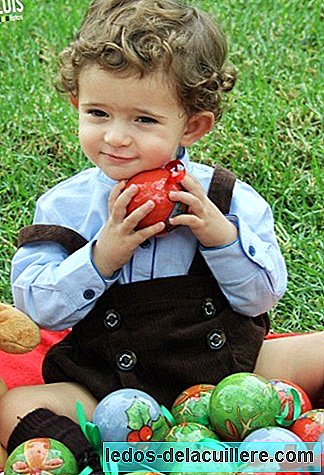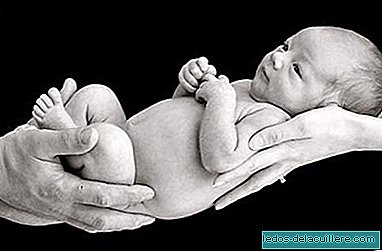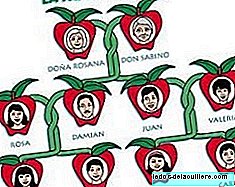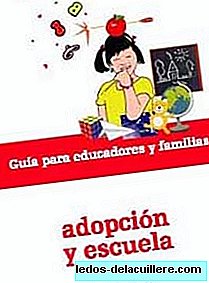
Yesterday we interviewed the psychologist Mónica Serrano and talked with her about the wonderful symbolism of paternal love that are the Magi. But I kept thinking about the families for which this Christmas is not going to be as splendid as other years and have had to cut their expenses due to the crisis and unemployment. For the little ones, although we cannot prevent them from perceiving the concern and that they are more careful with money, the reality can be harsh if they have to run out of gifts or have much less than other years.
A child of a certain age may understand, but a kid who looks forward to Christmas presents and his magic, may be disappointed and sad. Even if we already know how to prevent him from thinking that gifts are a payment for his behavior ... what can he think if the gifts do not arrive?
Let's go on then interviewing the childhood psychologist Mónica Serrano today, which will bring us, in such a sweet way that she has to bring us to the heart of the children, some ideas so that, if our family faces Christmas in the midst of crisis, our children do not suffer for it.
And how can we explain to a child that this year the gifts will just not exist because of a family economic problem if he is still very small and awaits Los Reyes?
Unfortunately, this situation can occur in many families this Christmas.
The young child does not understand economic crises or the need for savings. We return, at this point, to retake the idea of the explanation based on magical concepts.
We could explain to the children that this year Los Reyes have had a lot of work and the distribution of gifts has been complicated for them or that the camels are already older and cannot carry as many gifts as in previous years, for example. Actually, we must convey to the children, through a symbolic explanation that they can understand, that for reasons beyond the child's own (that he is not guilty at all of the absence of gifts), The Kings, who love him very much and they know that he is a wonderful child, they have not been able to bring him gifts (or not as many as other times) for questions centered on the Kings themselves (they were tired and old, the camels got sick ...). Again, we represent the reality of parents (economic difficulties) with the figure of Los Reyes (this year they are very tired, their camels are already old ...).
However, how does the explanation you propose in the previous question fit with the reality that other children do have gifts or have many more than others?
In this case, when the child sees that other children have had gifts or many more gifts that he poses a problem. We have to explain, then, the reason for these differences. Again, we have to generate a thoughtful and positive explanation for the child that responds to that real comparison that the child is making. One option may be to base the explanation on transience: this year, your friend has been given more gifts than you, but last year you had more (or next year you will have more). Thus, we appeal a casual cast, based on shifts and not on children's characteristics.
Can we also base the explanation on concepts of generosity?
Of course, Mireia. For example: because this child was sick this year many times, Los Reyes wanted to compensate him with some other gift. You have been lucky because you have been very healthy. It is about explaining to children an unfair social reality without transmitting frustration or anger, based on the transience of difficulty, on their own generosity and on the assessment of what they received (whether much or little).
This depends on the possibilities of each family, in the first place, and on the values that they want to transmit to their children.
The purchasing power of the family will limit, in most cases, the amount of gifts.
In addition, each family should reflect on what they want to convey to their children with Christmas gifts, what kind of gifts they think they should give them and how many are appropriate.
Well, you're absolutely right. People have a habit of criticizing or judging what others decide to do. And every family is a world. Any ideas for those who want to give gifts but do it with a criterion of consumption control (or have no other choice this year)?
One criterion to follow could be to base part of the gifts on necessary items (clothes, shoes ...) that are going to have to be bought before or after and another part on toys. It is this second part that we should be more cautious about, avoiding overstimulation and receiving toys for which the child may soon lose interest.
On the issue of consumerism, the prevention of it is a process that must be carried out throughout the year, although it has its maximum expression at Christmas. If the general family trend is directed towards responsible consumption, at Christmas it will be easier to protect the child from his social orientation.
We thank the psychologist Mónica Serrano the interview she has given to Babies and more and we hope to continue, of course, talking about Christmas presents and of all that frenzy of exciting activities that will reach our lives and those of our children.












